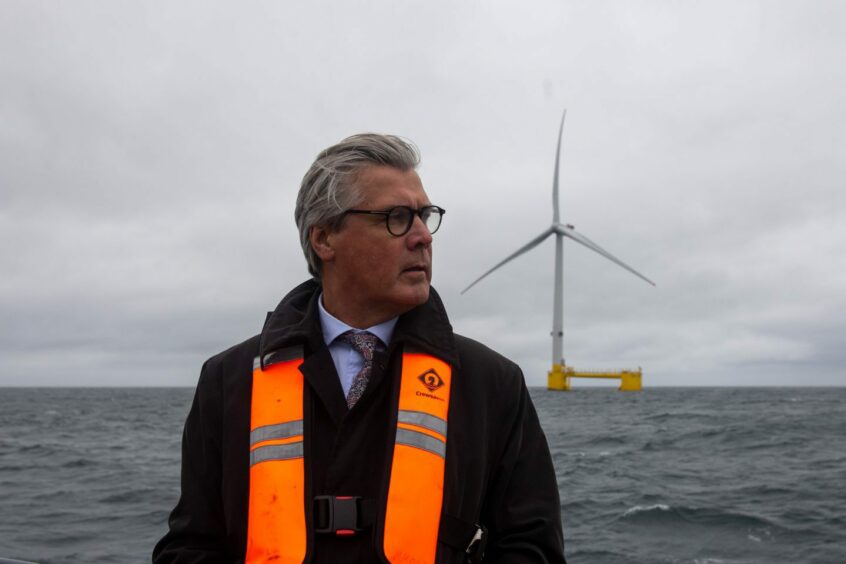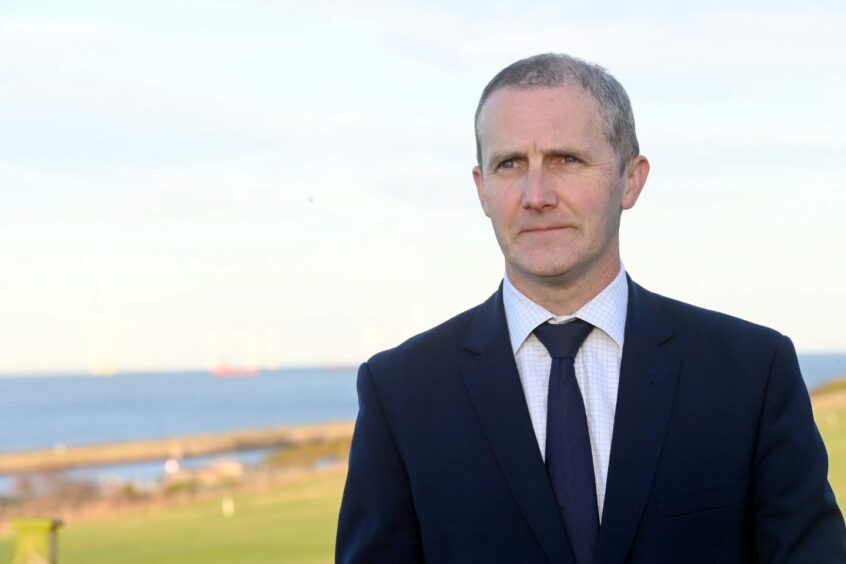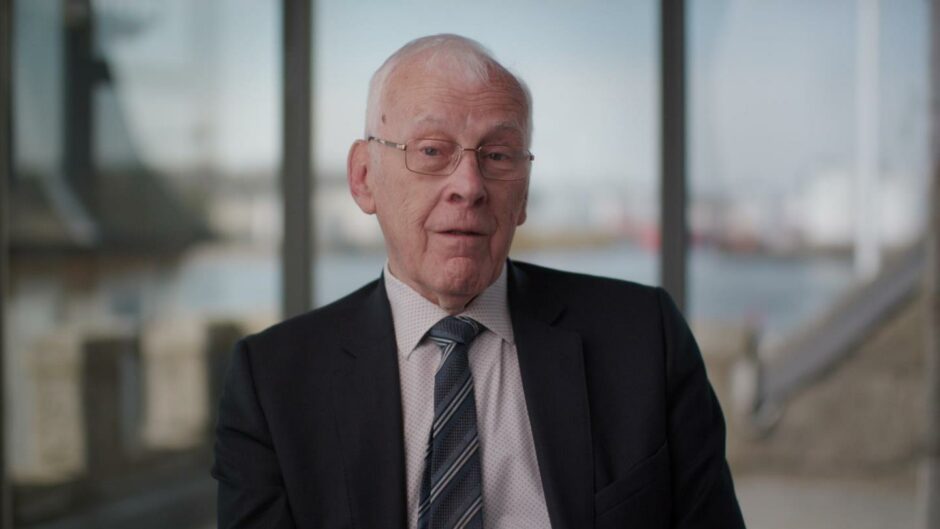
Lord Offord of the Scotland Office said it would be “crazy” to shut down oil and gas in the north-east in response to the Scottish Government’s recently announced energy strategy.
Speaking at the launch of the National Subsea Centre in Dyce, Mr Offord told Energy Voice: “It’s absolutely crazy to think about closing down the hydrocarbon industry in Aberdeen when we need the investment and the people to actually get us to net zero.
“A lot of the investment that is going into renewables only comes through the profits generated in the hydrocarbon sector and these profits are being reinvested into renewables.”
The Scotland Office representative pressed the importance of holding onto jobs created in the oil and gas sector as the country transition to net zero, noting: “There are 165,000 jobs in energy in the UK, of which 40,000 are in Scotland, in the north-east.
“If we lost all these jobs overnight we would not be able to get the transition to net zero so it’s critical that we work together with hydrocarbons and renewables.”
In Offord’s opinion, retaining these roles will keep Aberdeen “at the centre of energy.”
His comments follow the release of the highly criticised Scottish Government draft energy plan which aims to set a course for Scotland’s energy transition, setting out how the government intends to ensure a just transition from oil and gas to renewables.
When questioned on when the Scottish Government would like to see North Sea licenses no longer being handed out, cabinet secretary for net zero, energy and transport, Michael Matheson, responded: “We haven’t set a date.”
He added: “Part of the issue is that, as we can see with the North Sea oil basin, it will go into significant decline and as demand reduces, we’ll get to the point by 2050 it will be at about 3% of what its output was in 1999.
“There won’t be that much licensing available anyway because anything that’s there would have already been exploited so I wouldn’t set a date because there’s a natural decline taking place, both in the basin and as demand reduces in the years ahead.”
However, Jenny Stanning, external relations director at Offshore Energies UK, commented on the new plan saying: “We are concerned at the statement’s suggestion of accelerating the decline in oil and gas production.
“Scotland gets 79% of its total energy from oil and gas according to its latest official figures. Across the UK about 24 million homes (85% of the total) rely on gas boilers for heat and we get 42% of our electricity from gas. We also have 32 million vehicles running on petrol and diesel.
“These plain facts mean we will need gas and oil for decades to come.”
Offord and Stanning were not the only people to criticise the Scottish Government’s draft energy plan, with Aberdeen’s Ian Wood saying that the “reality” is the jobs and economic benefits of renewables “will not be available at scale until 2030 at the very earliest” and said Scotland must continue oil and gas production as part of energy security.
When asked the timeline set out by Mr Wood, Mr Matheson said: “We need to speed up the deployment of our renewable energy projects, however, there’s already something in the region of over 3 gigawatts of offshore wind projects which have been given consent.
“There’s also a whole range of onshore wind projects that have got consent, all of which will be delivered before 2030 which would be in addition to what we have at the present moment so it’s not a case of ‘nothing would happen until 2030’.
“My view is there will be a ramping up of jobs within the renewable energy sector between now and 2030 and that will further accelerate into the 2030s and 2040s.
“It’s not a case of waiting until the 2030s, that’s already happening and you can actually see in the green jobs barometer that Scotland is actually one of the areas in the UK for an expansion in skill-based jobs, a lot of which is associated with the renewable energy sector.”
Recommended for you


 © Supplied by Darrell Benns / DC T
© Supplied by Darrell Benns / DC T © Supplied by BBC Scotland
© Supplied by BBC Scotland